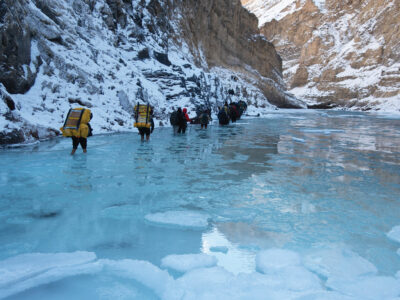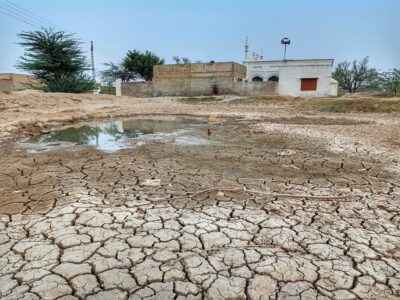The IKEA Foundation has agreed to help fund an Earth Institute pilot program in India aimed at improving primary education and enrollment in two rural school districts. An estimated four million children will have better access to higher quality education as a result.

The major goals of the five-year project are to improve teaching programs, evaluation and student achievement; and to lower grade repetition and dropout rates. IKEA has pledged more than $2.5 million for the project – one of seven grants the foundation just announced that aim to improve health and education for children around the world.
“We seek to demonstrate that a relatively modest, targeted program of innovations and resources geared toward community building, teaching and learning, and educational programming, coordination, monitoring and evaluation will significantly improve the two outcomes of interest, will be cost-effective and will be readily scalable,” Dr. Nirupam Bajpai, director of the Columbia Global Center/South Asia, explained.
The South Asia Global Center will implement the Model Districts Education Project: Access to Achievement in coordination with the government of India, the state governments of Assam and Andhra Pradesh, where the two project sites are located, and other key stakeholders in primary education. Faculty from the Earth Institute and several Columbia University schools will participate, including from Columbia Teachers College, the School of Social Work, the College of Physicians & Surgeons and the College of Dental Medicine.
An important component will be to create better nutrition, hygiene and oral health practices in the schools and communities to alleviate the health problems that often prevent students from focusing on learning. The project will draw on the experience of the Earth Institute’s Model Districts Health Project and on current scientific evidence and models of best professional practice.
“Getting every child into school and making sure they get a good education are vitally important steps in the fight to eliminate extreme poverty and to help today’s poor to get a foothold in the global economy,” said Earth Institute Director Jeffrey D. Sachs. “We are extremely grateful to the IKEA Foundation for their generosity and willingness to join this effort. The new program in these two school districts in India will serve as a model that we hope can be useful in districts around India, and in developing countries more generally.”
The United Nations’ Millennium Development Goals call for all children to complete a full course of education by 2015. In response to this mandate, there have been significant strides in terms of access: The number of out-of-school children worldwide dropped from 106 million in 1999 to 69 million in 2008, according to a 2010 UN report.
India has seen significant progress: As a result of the nation’s recent efforts, nearly 20 million children have been enrolled and the number of out-of-school children declined from 25 million in 2003 to 8.1 million in 2009. Gender and social gaps in enrollment have also narrowed. But despite the rapid expansion of school facilities and enrollment, millions of children still do not attend school, and retention rates and achievement scores remain stagnated at low levels.
Model Districts Education will develop a roadmap for the two selected districts, the two state governments and the national government, with an emphasis on how system improvements and corrected interventions can accelerate progress toward the first three Millennium Development Goals: ending extreme poverty, providing all children access to primary education, and eliminating gender disparity in primary and secondary education.
Many factors affect children’s ability to learn, from health problems and poor sanitation to lack of communication with parents and accountability for teachers. Children who come to school hungry, sick or suffering from the results of poor oral hygiene have a more difficult time learning. Steps such as a simple breakfast meal or lessons in toothbrushing and handwashing offered in school can help.
“Schools should offer children a safe environment for them to learn the ways of living a healthy, responsible and productive life,” Bajpai said. “Schools should also act as centers from where children relay knowledge and values into the families and the communities they live in. The role of a school is no longer limited to the education of a child. It should facilitate the wellbeing and development of the entire community. In order to transition over from accomplishing access to meaningful achievement, we need to extend our vision and purpose of schools from children to entire communities.”
The project will try to give teacher performance a boost through training, improved educational programming, and better methods of monitoring and evaluating performance. “By all accounts, the root problem in systemic failures in rural primary education in India to date is weak accountability in the management of learning performance,” Bajpai said.
# # #
CONTACTS:
Dr. Nirupam Bajpai: nbajpai@ei.columbia.edu
More information:
Erin Trowbridge, communications director, Earth Institute: trowbridge@ei.columbia.edu
Jonathan Spampinato, Head of Communications & Strategic Planning, IKEA Foundation: +31 611 756 336, Jonathan.Spampinato@IKEAFoundation.org



